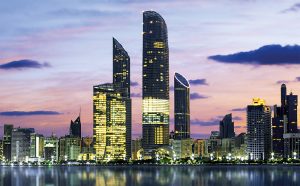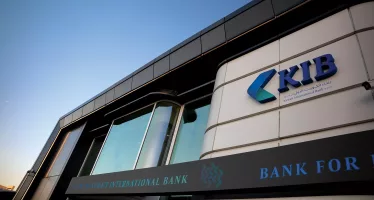2020 UNCTAD World Investment Forum: More Important Than Ever in an Age of Worrying Trends

Abu Dhabi
In December this year, Abu Dhabi will welcome government leaders, CEOs and investment stakeholders for the seventh biennial UNCTAD World Investment Forum (WIF).
The forum’s mission is to promote investment for sustainable development. And there are worrying trends, as well as signs of hope.
UNCTAD’s latest assessment is that global FDI remained flat in 2019, at $1.39tn, a one percent decline from 2018. But FDI was up in Latin America and the Caribbean, as well as in Africa.
As director of UNCTAD’s Investment and Enterprise Division, and organiser of the forum, I am concerned that global FDI is stagnating. But I see that investors, firms and governments are putting sustainability at the core of their activities.
This makes me optimistic that — through initiatives like the World Investment Forum — we can change investor ehaviour and leverage investment for sustainable development.
“The WIF will continue its mission to provide a universal and inclusive platform for investment stakeholders to address emerging investment issues, to support international investment, and to maximise the contribution of investment to sustainable development.”
Private sector innovation and investment can accelerate the world’s shift to a sustainable growth track. Governments need to realign the regulatory and policy environment to increase the share of invested capital driven by sustainability. This requires dialogue between all stakeholders, the sharing of best practices, and the agreement of investment and financing solutions.
Since 2008, the World Investment Forum has been the UN’s leading multi-stakeholder platform to drive investment for sustainable development. It offers participants the opportunity to influence investment policymaking, shape the global investment environment, and network with global leaders in business and politics. It has helped translate initiatives, such as the Sustainable Development Goals (SDGs) and the Paris Climate Change Agreement, into immediate action. It has shaped policies that better address sustainability challenges and promoted the mobilisation of capital for sustainable investment, especially in the developing world.
The WIF was established to fill the need for an international forum on investment policy. The idea was to supersede intergovernmental negotiations by providing a platform for inclusive dialogue for the entire community of investment-development stakeholders. The process led to consensus on policies and norms, a “soft” approach to global investment policymaking.
In its objectives, timing and approach, the establishment of the WIF has proved prescient. The past decade has been one of huge shifts. Digitalisation and automation were barely on the radar at the start of the decade but are now on all policy agendas. These developments have forced a rethink of capitalism itself, underscoring the need for inclusive, action-orientated dialogue between key stakeholders across sectors, civil society, academia and international organisations.
Looking ahead to this years’ WIF in Abu Dhabi, there are three key questions for the global investment-development community:
- How can investment stakeholders rapidly integrate sustainability criteria into investment decisions and business operations and create long-term value and sustainable development impact?
- How can governments and businesses respond to the consequences of technological change for development, harness its potential, and mitigate the risks of premature de-industrialisation and social change?
- What are the implications of increasing fragmentation in international economic policymaking that has led to a rise in protectionism and competition, as well as an emphasis on regionalism and a move away from liberalisation to intervention?
Together, these subjects will have profound consequences for the new era of globalisation and structural transformation, posing challenges and opportunities.
The WIF will continue its mission to provide a universal and inclusive platform for investment stakeholders to address emerging investment issues, to support international investment, and to maximise the contribution of investment to sustainable development.
With the stakes ever higher, and with UNCTAD’s latest forecast for FDI this year looking weak, the World Investment Forum is needed more than ever.
About the Author

Author: James Zhan
Dr James Zhan is senior director of investment and enterprise at the United Nations Conference on Trade and Development and lead editor of the World Investment Report.
You may have an interest in also reading…
Innovation at the Core: How KIB is Shaping Modern Banking
Kuwaiti financial institution embraces innovation, but holds fast to Islamic roots and tradition. In a region where financial institutions often
The New Global Context – Uncertainty Unveiled
The emergence of a global market place may already be grinding to a halt. Before long, economic integration, a process
SpaceX: Making a Splash in Privatised Space Exploration
The United States government is outsourcing its business in space at an astronomical rate. Contracts worth billions of dollars are

















































































